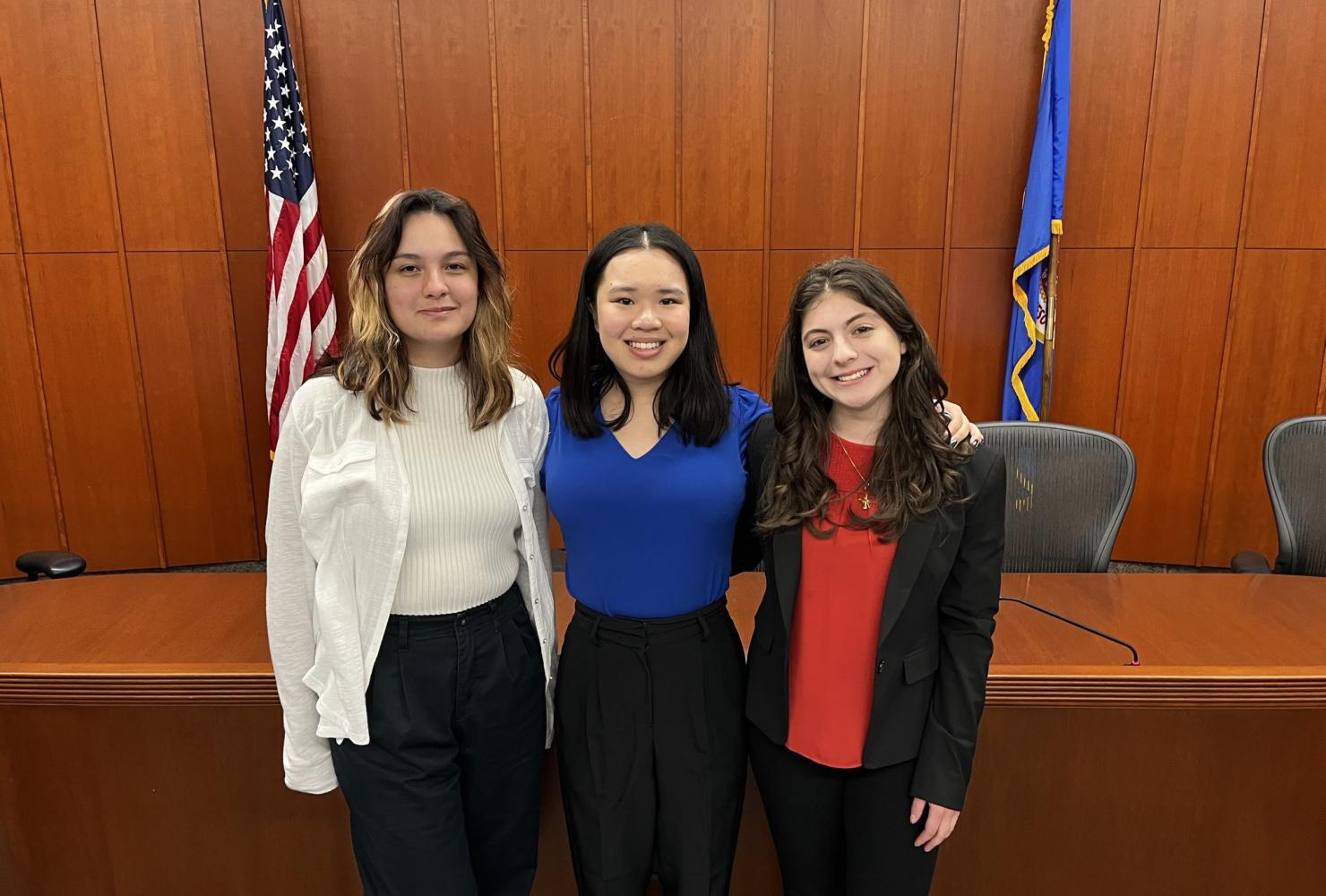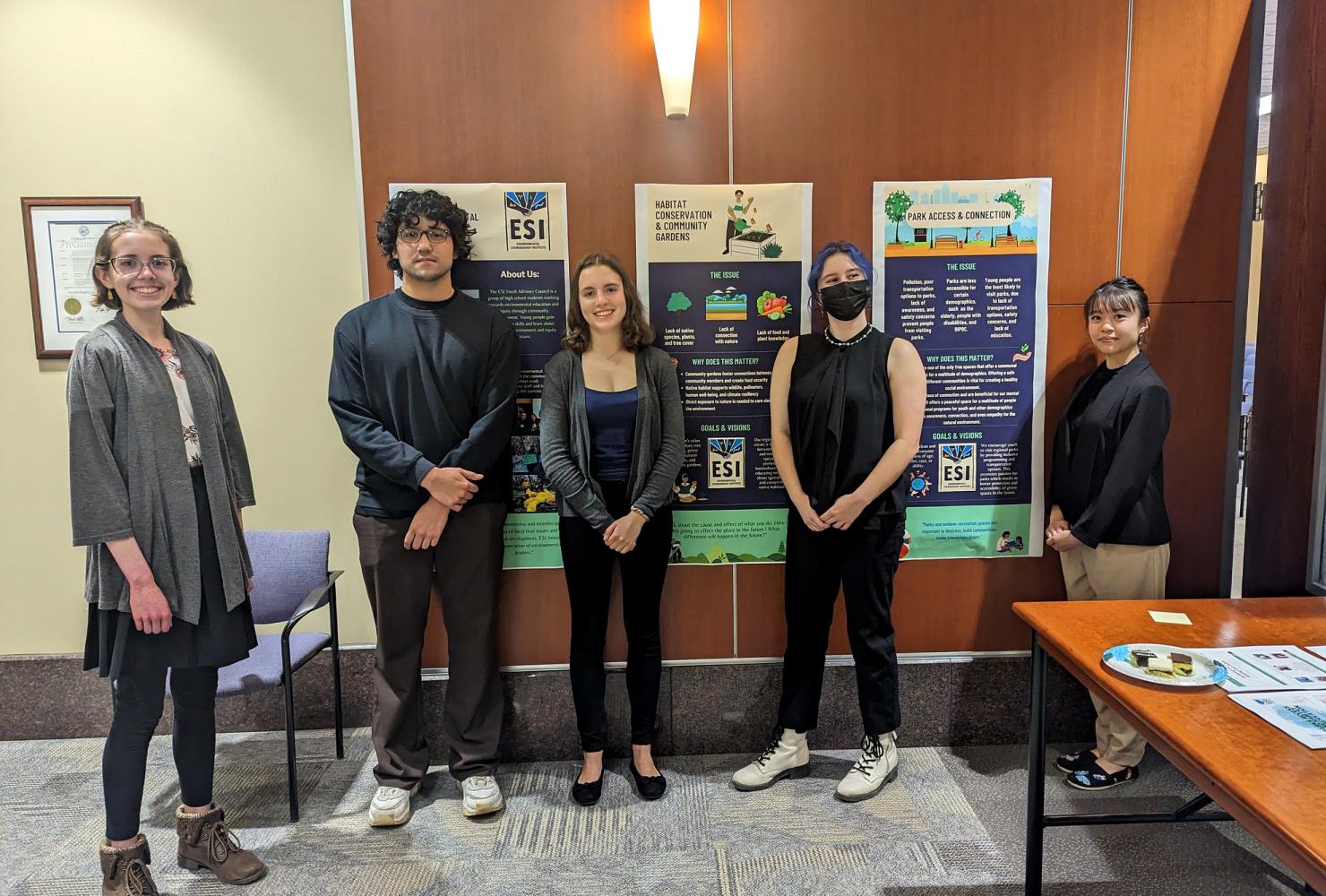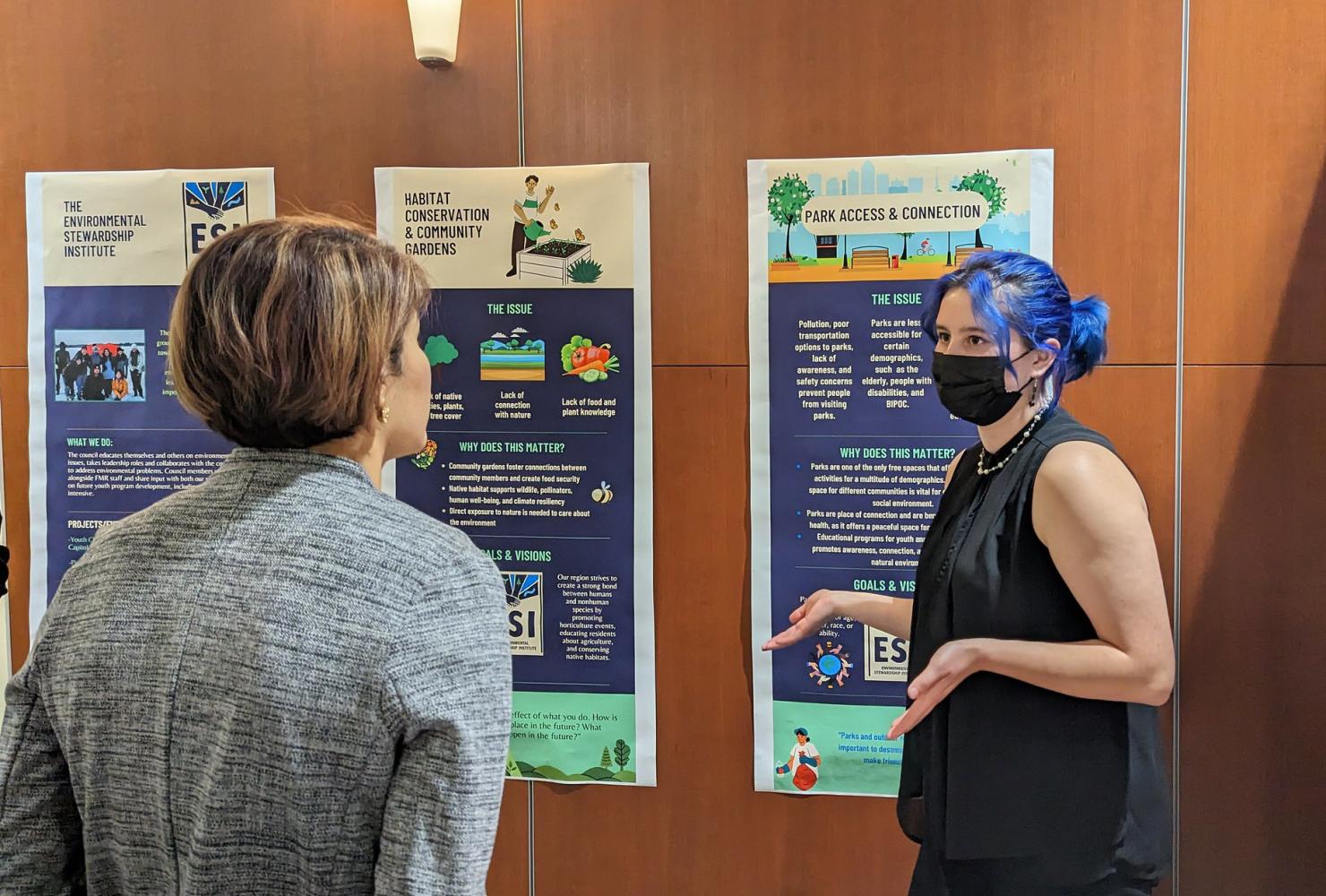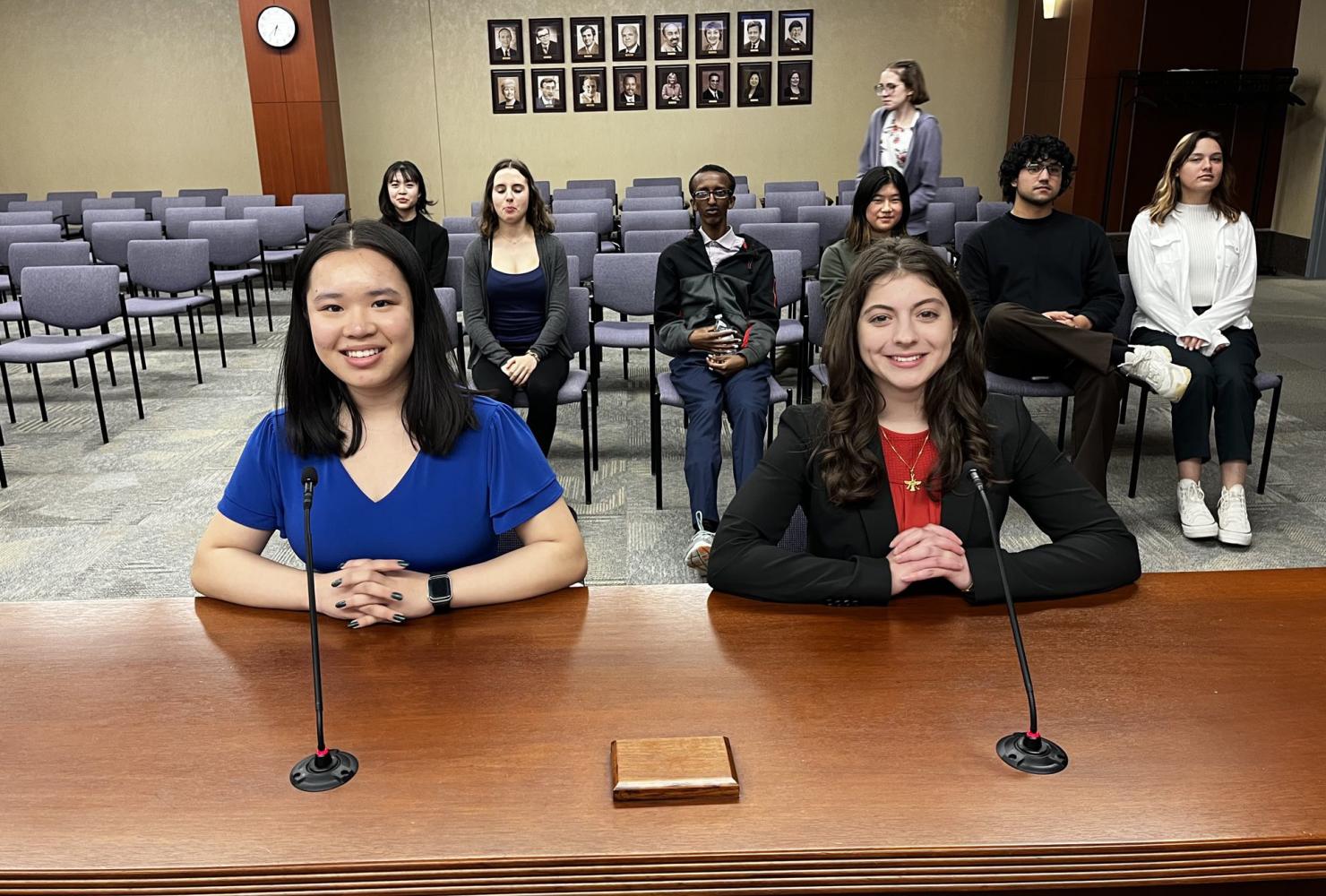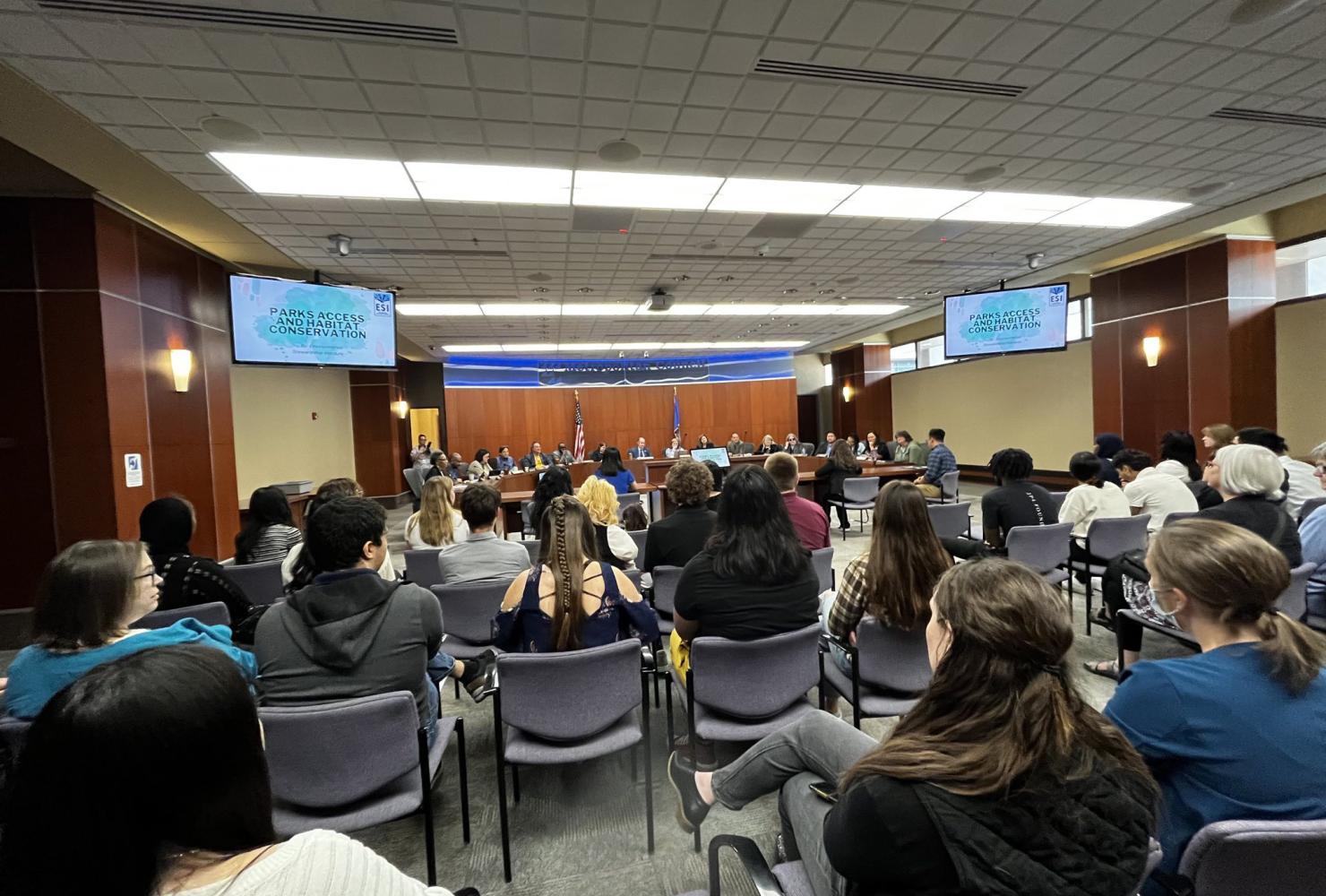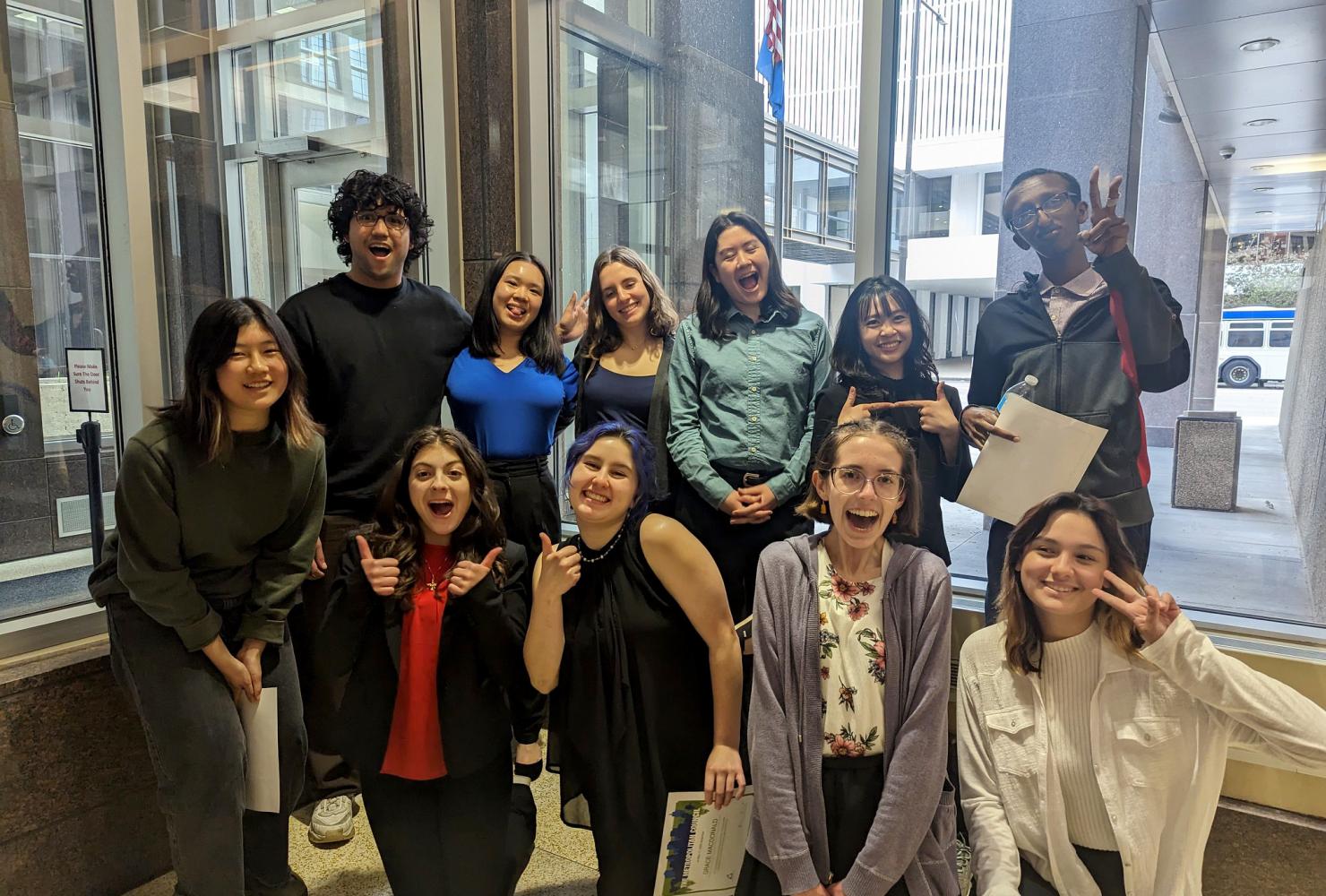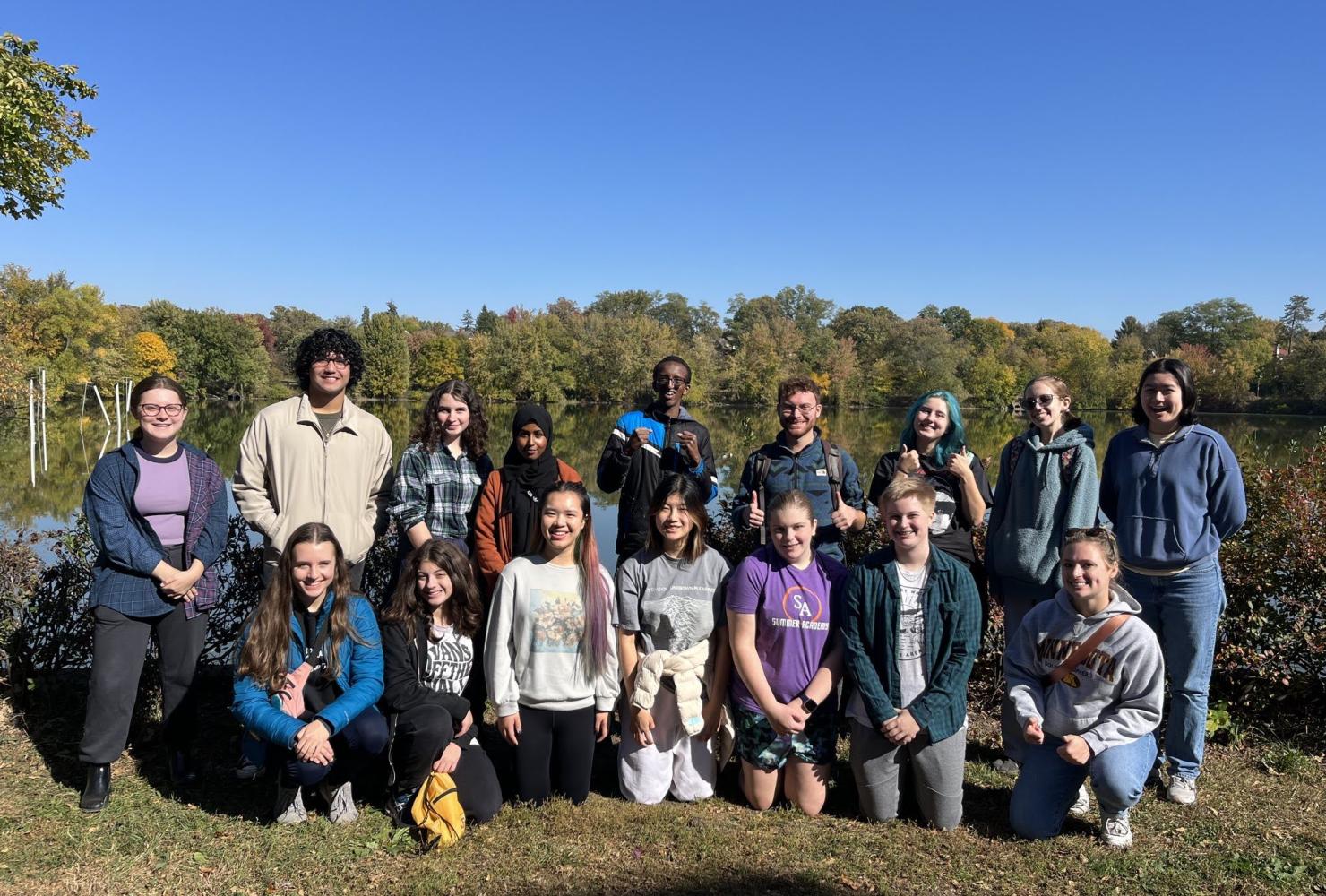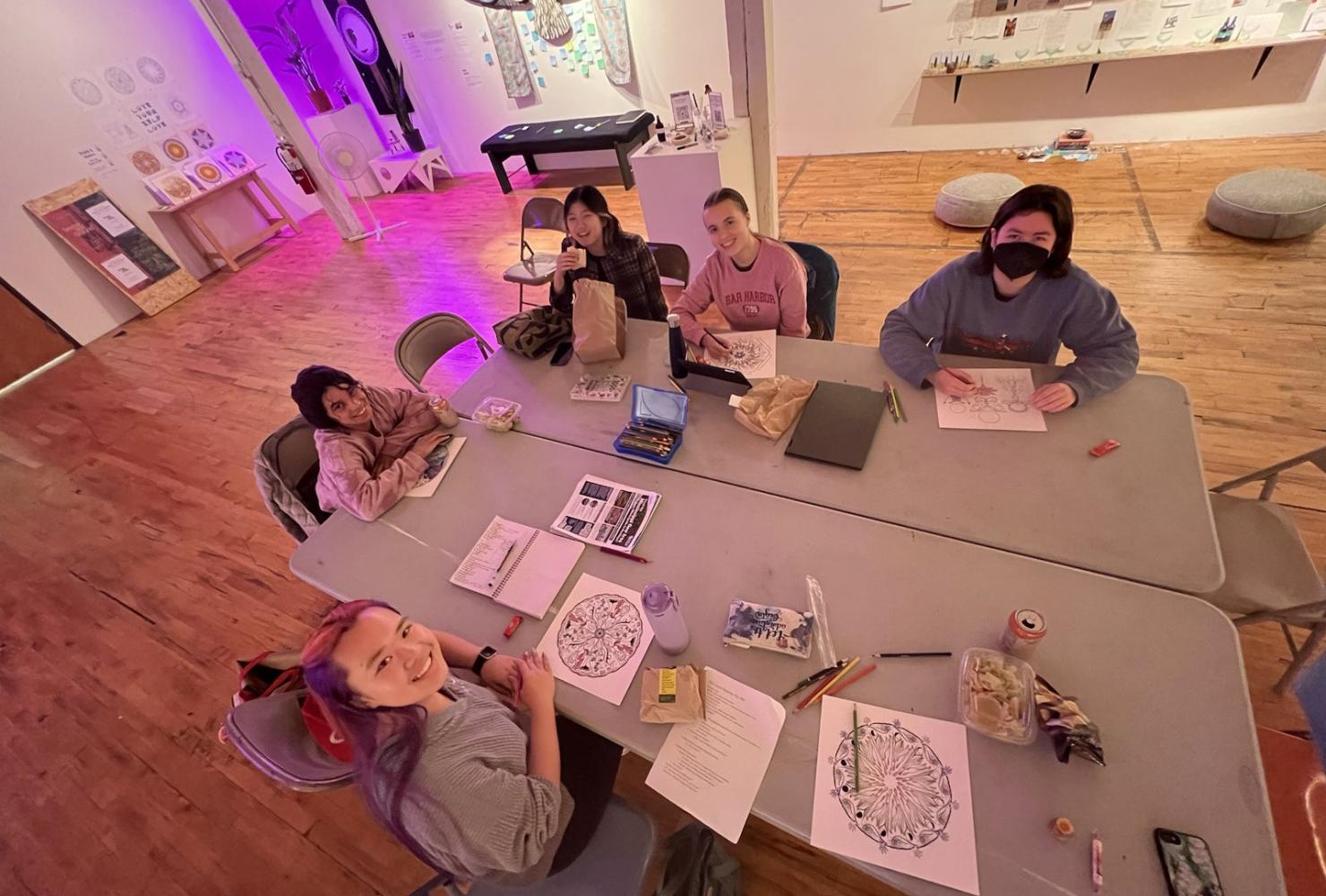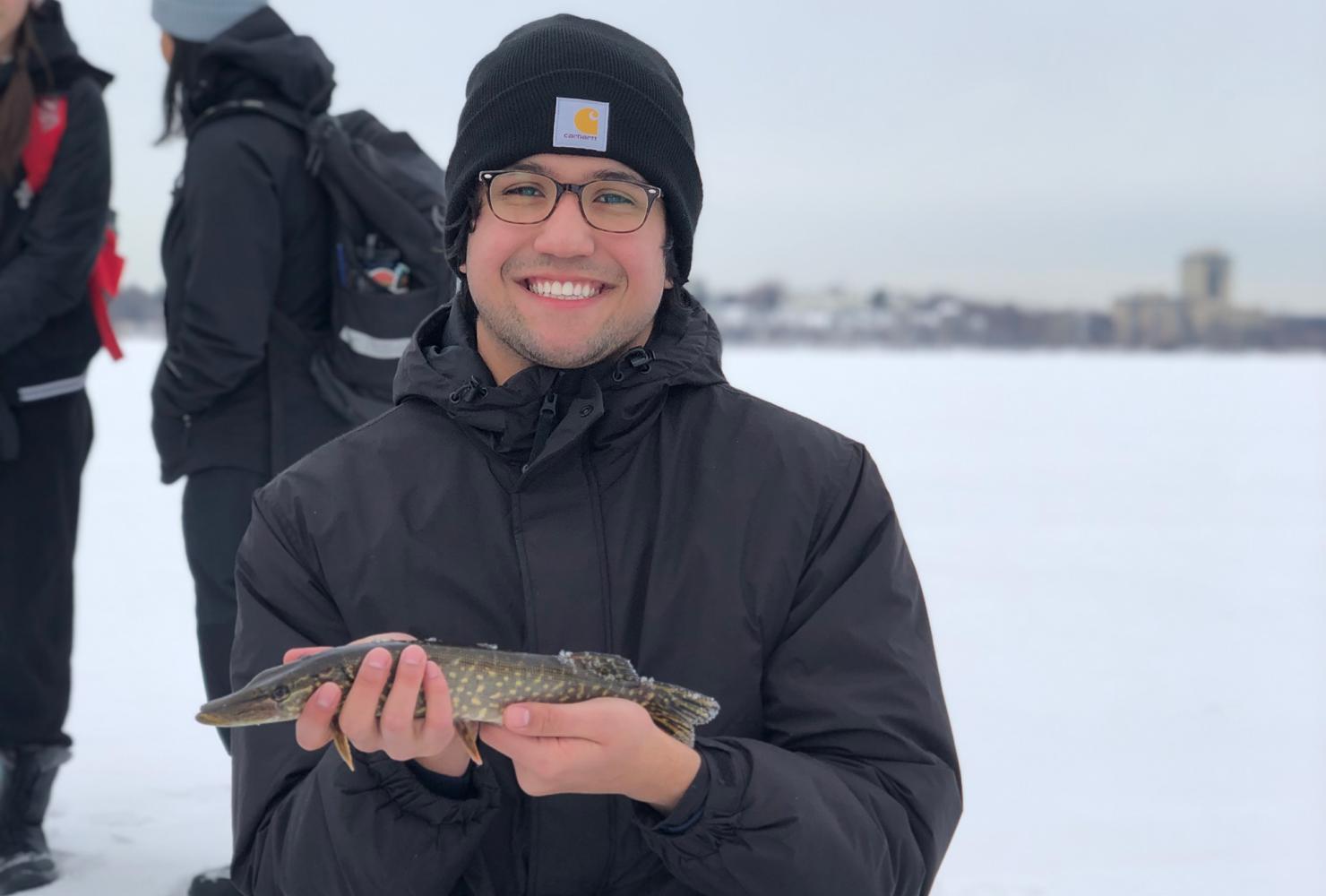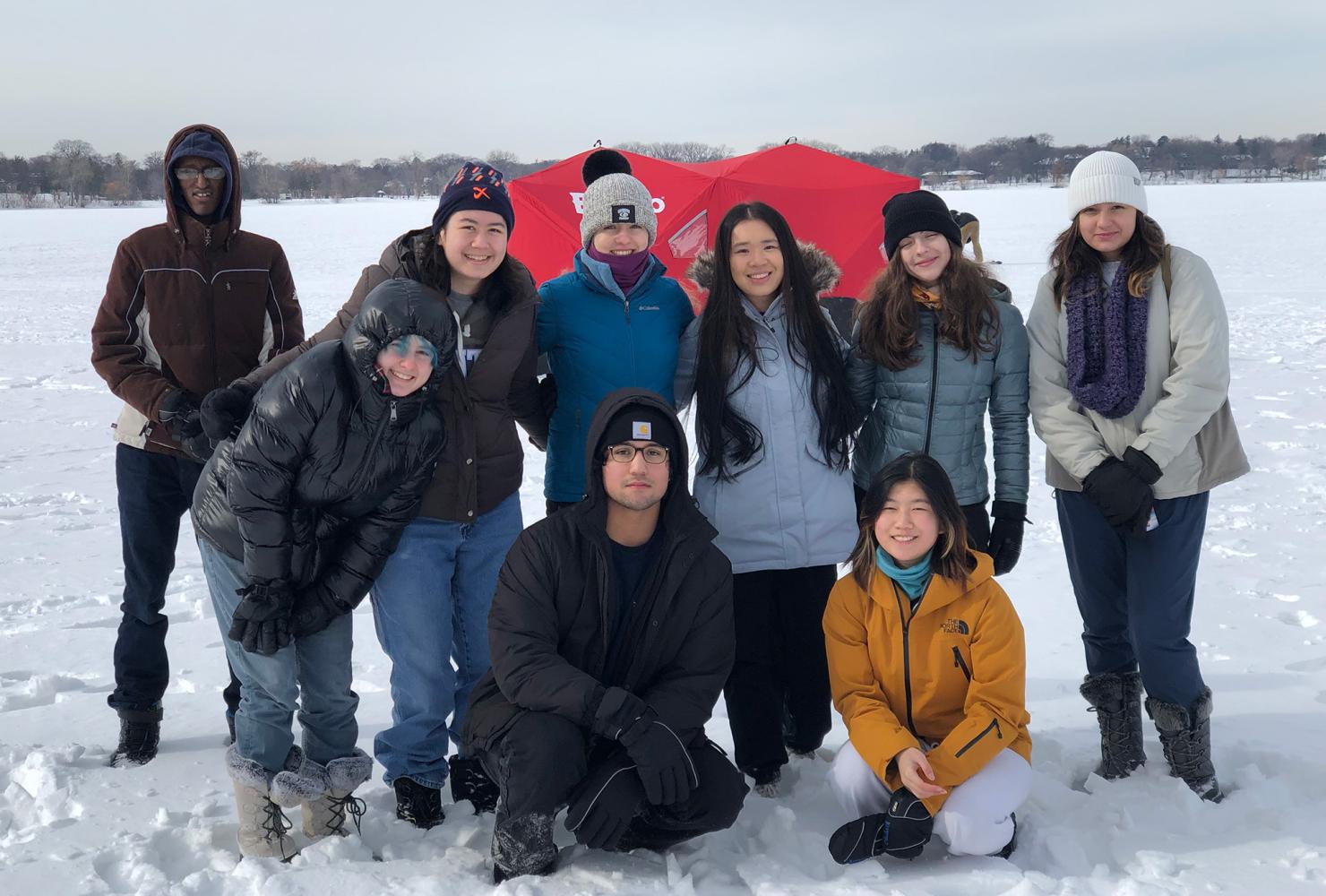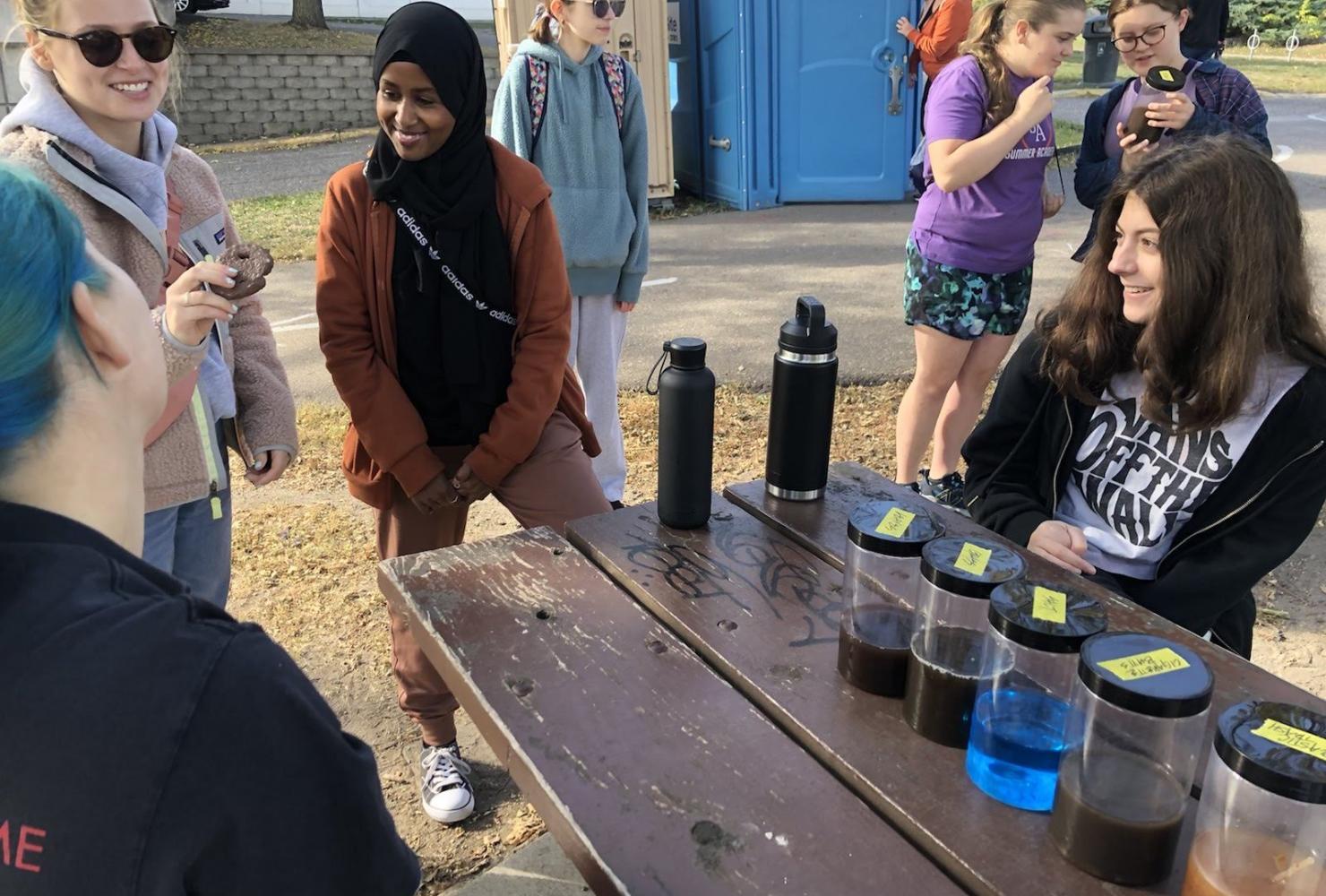Metropolitan Council consults FMR's youth council for 2050 plan
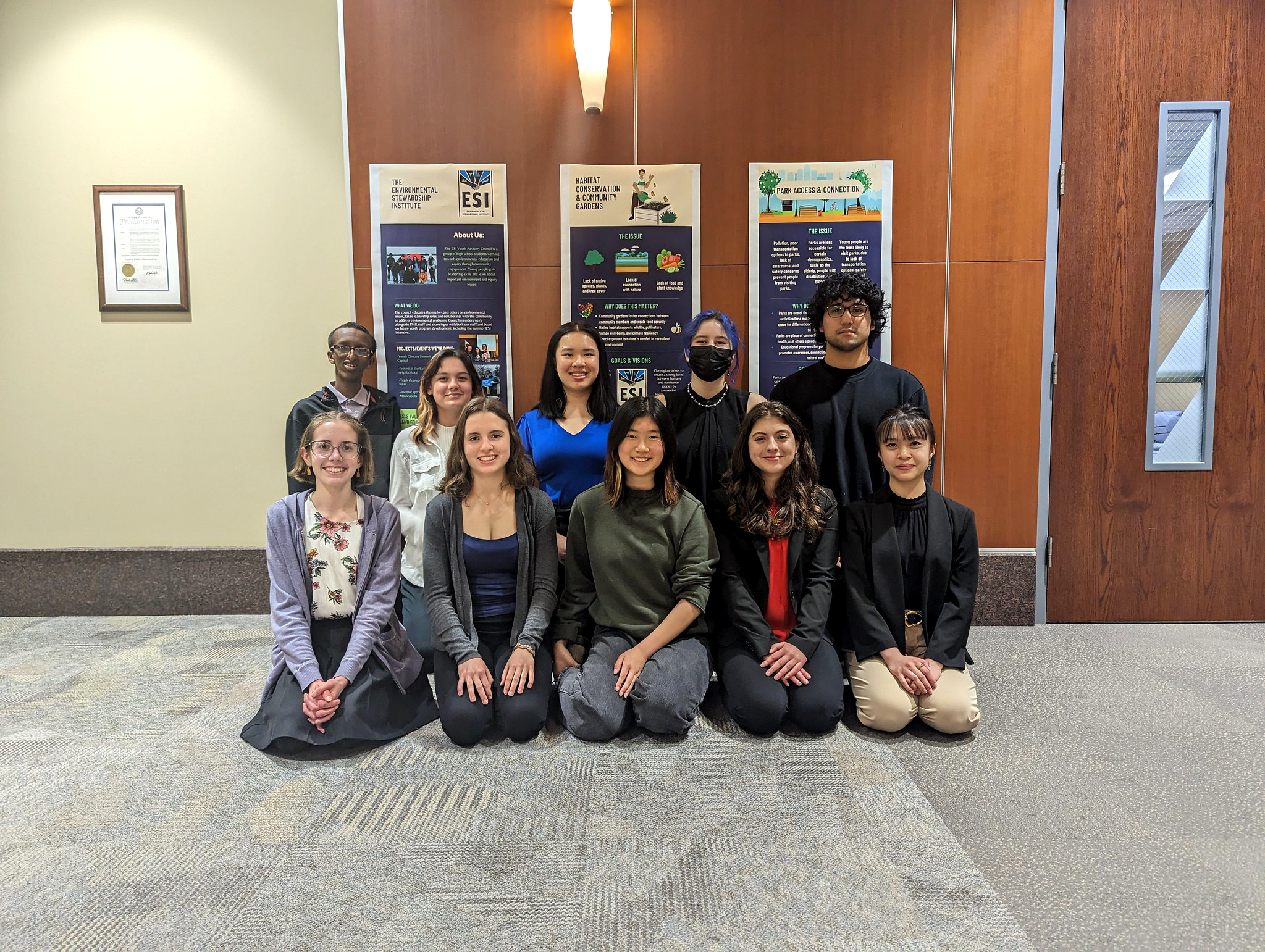
FMR's Environmental Stewardship Institute (ESI) Youth Advisory Council presented to the Metropolitan Council on park access and habitat conservation this spring as part of the Council's Young Leaders Collaboration initiative. Through this initiative, youth voices will help shape the 2050 regional plan.
Our presentation was the culmination of months of hard work investigating these issues and possible solutions through community interviews, research and reflection.
ESI Youth Council's recommendations to Met Council
In order to develop our recommendations, we learned about the lack of park access and attendance among disempowered groups, especially among young people, and how community gardens and habitat restoration can create stronger and more resilient communities.
Each ESI council member conducted three peer interviews, asking questions we designed during our workshops with Met Council staff. We recorded hours of interview data, hearing from people across the Twin Cities area about the role of parks and habitat conservation in their lives. During these workshops, we learned that community stories are just as important as quantitative data when giving policy recommendations because it is individual experiences that make up metro-wide trends.
After the interviews, we consolidated the stories and collected the sentiments we heard over and over: parks are hard to access, parks and habitats are needed for community building, and people want more parks and natural areas in their communities. We used these ideas, along with data about park attendance and urban habitats, to inform our suggestions.
We also included direct quotes in our presentation and infographic posters to connect our recommendations to the emotional reality of our interviewees.
Regional parks and community gardens are great places to connect with nature and our neighbors. One of our participants summed up the importance of accessible parks by saying, "Parks and outdoor recreation spaces are important to destress, build communities and make friendships bloom."
Another interviewee commented on the importance of community input and transparency in government policy: "People want to know what's going on. They want to know what's happening in their neighborhood ... Policy should involve the community and consider their needs." One of the most important things we learned is that people want to know about and care for the environment and their local habitats but often do not have the resources or time to do so.
Some of the goals and visions we offered included ideas like focusing on accessibility when planning regional parks, safety at parks and educating our communities about the environment.
Watch the entire presentation
You can take a look at our presentation slides and our infographic or watch all the youth presentations below. We present at 48:40.
We are so grateful to the Met Council for this opportunity to have our voices heard on these critical topics. And we are excited to see our recommendations reflected in the 2050 plan.
A full year of learning and advocacy
The Met Council presentation isn't the only thing we did this year!
Several of our council members also presented on worldwide environmental initiatives at the Youth Climate Justice Summit, discussing everything from sustainable agriculture in Nepal to public transportation improvements in Argentina. We also went camping, canoeing with Wilderness Inquiry, and ice fishing with Minnesota Valley Wildlife Refuge interns. Check out our Instagram page to see photos and updates from the year.
Seeing our council members grow in leadership and confidence through ESI has been exciting. When we asked about their experiences, one of our Met Council presenters said, "Before this year, I would have never chosen to be a speaker for a group like this. I would've let someone else do it instead. But after our presentation, I felt really accomplished and am more confident in communicating what I learned to a large group."
Another council member spoke about the opportunities ESI provided, saying, "ESI helped me to do things I wouldn't have done before. Having opportunities to go to events was really helpful, and ESI opened the door and removed barriers such as cost. Hearing people talk about all the things you can do in the environmental field, and just having that information, made learning about jobs more accessible."
Looking ahead
While the council has wrapped up for the year, ESI has much planned in the coming months. Our summer program, which expanded last year to welcome 20 fellows, begins in June! This year our theme is Mississippi Past and Present, and we are really excited to dive into our river’s history with the fellows.
Four of our council members are joining the team as assistants for the summer and are excited to take on a bigger role in ESI. The Met Council project has also expanded possibilities for our council members, and next year we look to continue to share our voice in government and to further collaborate with other youth organizations.
As we look back at all the council has accomplished in the past two years, we know that we are just getting started.
